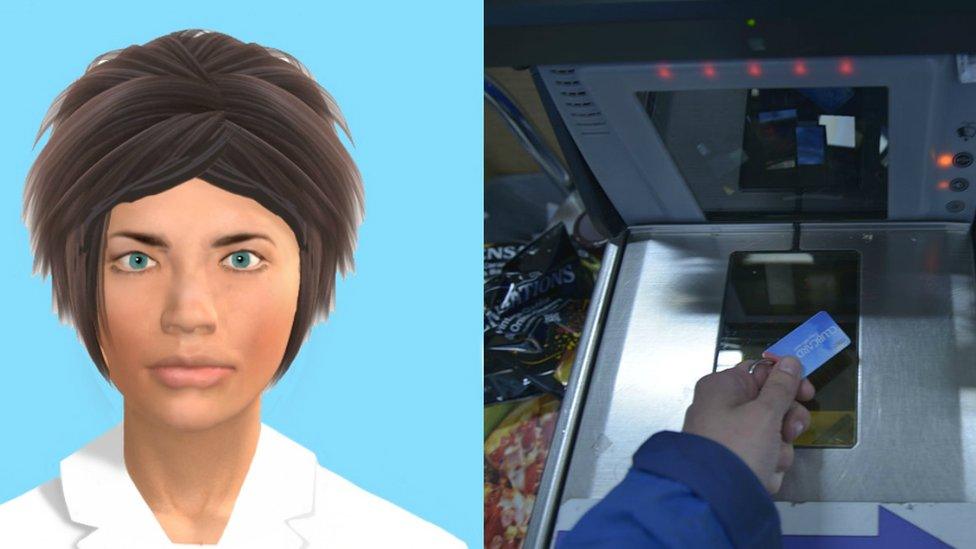Digitised faces at self-service checkouts 'could cut dishonesty'
- Published

Academics discovered that a realistic, human-like face resulted in fewer instances of dishonesty
Digitised human-like faces at supermarket self-service checkouts may reduce the risk of shoplifting, according to a new study.
Abertay University academics developed virtual characters to test whether their presence affected shoppers' behaviour.
Research had indicated increased automation raised the likelihood of customers behaving dishonestly.
The study involved the simulation of a self-service checkout scenario.
Participants were asked to scan or weigh items, before paying for them, providing them with the opportunity to select lesser weights or scan fewer items.
They discovered that a realistic, human-like face resulted in fewer instances of dishonesty among customers than less human-like characters.
Influence behaviour
Susan Siebenaler, who conducted the research for her PhD, said: "The participants were placed in situations in which they could benefit financially through dishonest behaviour.
"Participants appeared to be positively influenced by greater social presence, such as human-like features, which meant they were less likely to cheat."
Dr Andrea Szymkowiak, senior lecturer in human computer interaction, said: "People are responsive to social human cues, and there seems to be an in-built mechanism that makes us respond to faces and eye contact.
"The idea here is that the presence of human-like digital characters may influence shopper behaviour, but further research is required to determine the real-world benefit of such technology."